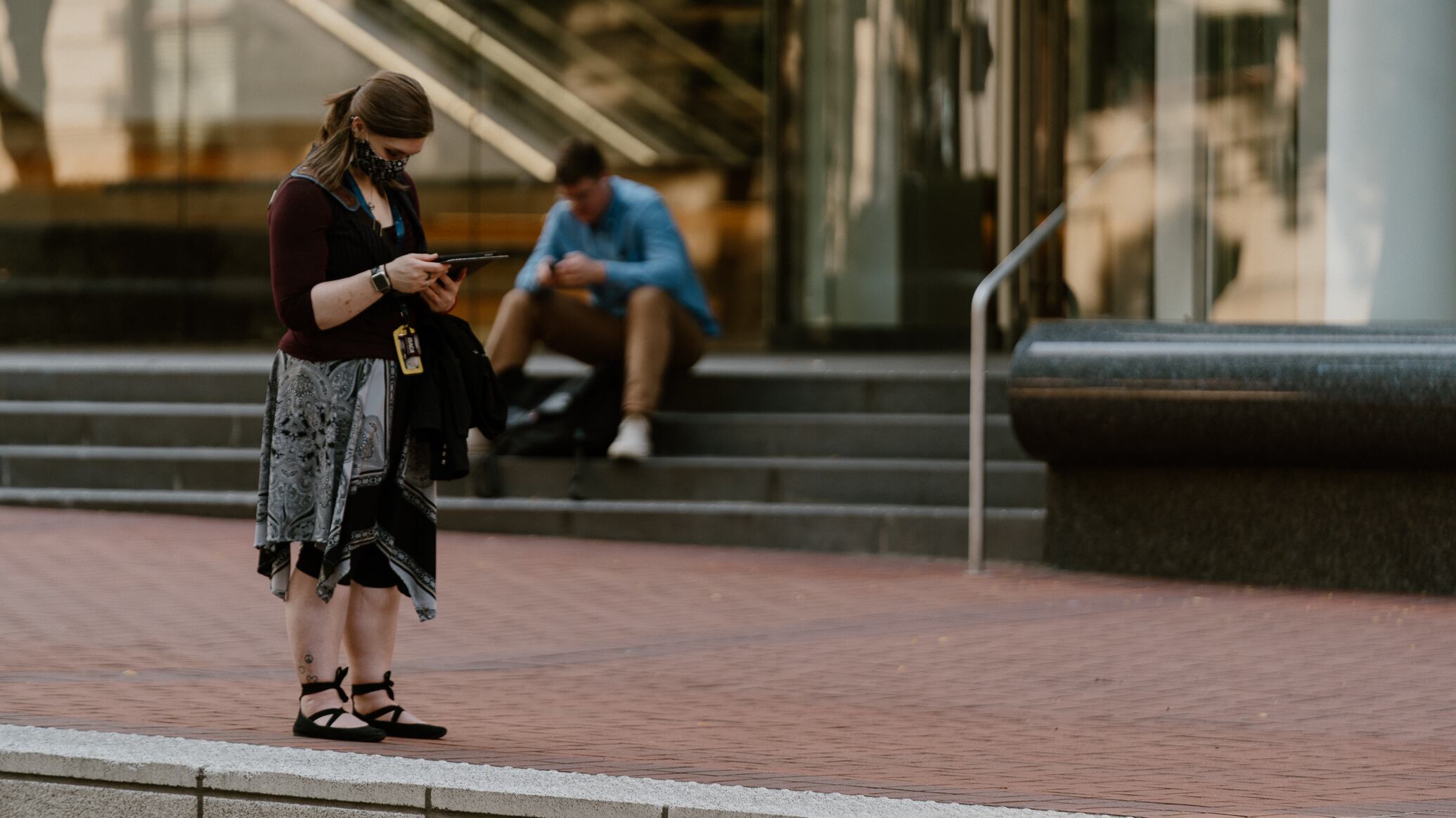Mayor Ted Wheeler’s office is courting both private and public employers in an effort bring back employees back to their offices across the city as Portland lags behind peer cities in post-pandemic recovery.
Major private and public institutions involved in the discussions with the mayor’s office about return-to-work policy include Oregon Health & Science University, Portland State University, TriMet, Standard Insurance, Portland General Electric and real estate firm Melvin Mark Companies. The discussions cover offices in the central city, South Waterfront, the Lloyd District and the Central Eastside.
Those talks, led by the mayor’s office and still preliminary, could speed the city’s recovery. Officials in the mayor’s office are also weighing what an incentive program might look like to make the transition easier on employers. They are considering incentives such as discounted or free child care, doggy day care, and transportation cost reimbursements.
“The mayor and City Council are interested in comparing notes with other major employers in the central city and working in tandem to address the concerns that employees have about returning to the office,” mayoral aide Sam Adams tells WW.
The mayor’s office is looking to San Francisco as an example of a major cities that struck a similar deal with private companies to bring employees back.
Such a proposal would have to be approved by a majority vote of the Portland City Council. Most city commissioners have treaded lightly on the topic of returning to the office, their trepidation to mandate a return due at least in part to a letter from representatives of more than a thousand city employees sent in June, and first reported by WW, that said a mandatory return would be sexist, ableist and racist.
City Hall has its own issues to overcome: Thousands of upset city employees who have adjusted to remote work, unions already filing labor complaints over return-to-work policy in city offices, and downtown’s struggles with visible drug use, homelessness and gun violence.
But the pressure is on Wheeler and his council colleagues to act.
A July report by ECONorthwest, delivered to the mayor’s office and first reported by WW, showed 55% fewer employees working in downtown Portland than there were before the pandemic. And a national study by the University of California, Berkeley, ranked Portland’s 60th out of 62 major cities based on cellphone data.
Meanwhile, some downtown hotels face foreclosure and major employers are cutting back on the size of office leases to accommodate remote work. Office vacancy in the downtown core stands at 26%.
Wheeler has initiated new policies to address the situation: increasing police patrols in Old Town, sweeping homeless camps, and working on incentives to encourage developers to convert vacant office space into housing units.
Meanwhile, a workgroup under the city’s chief administrative officer is expected to make return-to-office policy recommendations to the City Council in the coming weeks. In a Sept. 15 email, CAO Michael Jordan told city employees that the council is discussing “the bargaining implications surrounding any decisions they may make on the future of work.”
